I’m
writing this post as a response to a strange comment received recently,
but more than that, this can be an ‘eye opener’ post if you fall in
same category. Do you believe in website stats and figures which are
calculated by third party web companies? do you think it is accurate?.
Here, I’m sharing the connectivity between Alexa Vs Google Analytics Vs
Earnings of a website or blog.
OK, here is the comment I received recently for my previous post about
adsense difference.
hey buddy ,
can you share your traffic analytics report(non-edited) ?
with the help of alexa rank anyone who have some mind can guess approximate adsense income.
so stop proclaiming these non-sense reports.
your sysprobs.com is tech related site so very less chances to get click
, because most of the visitors are tech savvy. cpm is not that much for
tech sites, according to your site alexa rank your monthly pageviews is
not over 500,000 permonth, and most visitors are from india and
neighbour countries.
so, stop these fu****g reports.
Interesting comment, but I did not approve it.
Even though I get more good and positive comments, but few of these
comments also come to my inbox. That was the main reason I shared my
last moth earning report with screenshots of each programs.
How others can guess and calculate my blog’s earning and actual traffic from Alexa?
I know most of the new bloggers waste time on third party website
calculators and go after behind it, because I also did the same mistake.
Alexa could be an important factor to consider, but that is not very
accurate. Almost one year ago I shared my comparison with Alexa and
exact traffic,
you can check it here.
If you are addicted to check your and others’ blog traffic, rank or
value on third party websites including Alexa, I suggest to STOP DOING
IT. It will never give correct information on others’ websites.
I can explain further on these stats by comparing my both blogs with correct Google analytics and income reports.
Lets see the Alexa rank;
Sysprobs
DailyBlogMoney
So, what you would guess immediately on actual earning and traffic by seeing above Alexa rank?
DailyBlogMoney is having better Alexa rank in India and Global rank is just 1.5 higher than Sysprobs.
So, can we finalize that DailyBlogMoney earning and traffic should be at least half of Sysprobs?
Let’s look at the actual last three months traffic report of Sysprobs blog.
and for DailyBlogMoney,
DailyBlogMoney’s traffic is only about 1.3% of Sysprobs traffic (by comparing PV).
But, Alexa doesn’t reflect that much difference in the global rank,
and surprisingly Indian Alexa rank in better for DailyBlogMoney than
Syprobs.
Here is the another Alexa factor to decide traffic, which is ‘Reach’.
‘Reach’ means how many percentage of global internet users visited a particular web site in last 7 days, 1 and 3 months.
Alexa reports for Sysprobs as below,
and For DBM,
As per the above report, 0.00474% internet users visited Sysprobs in
last three months whereas 0.00282% users visited DBM. Approximately DBM
received half percentage of which Sysprobs got in last three months.
But, was it correct compared to actual Google analytics report? When
Alexa ‘reach’ factor reports about 50% traffic, but the real traffic is
only around 1.3%, which is a big difference.
DailyBlogMoney did not earn considerable amount. Recently I removed
the main adsense slot from DMB which struggled to make even 10$ per
month. The adsense slot after each post is not doing anything and the
same applies to other affiliate banners.
So, my blog income is mainly from Sysprobs. I can say that DBM
contributed around 1% in my last three months earning. But still that
doesn’t translate Global Alexa ranks difference.
The below example is even worse,
Here are the stats now,
For Sysprobs
OK, this is quite reasonable. The daily pageview and Revenue are slightly around what I get from Sysprobs.
Check the below stat for DailyBlogMoney from same websiteoutlook calculator.
Am I making $44 daily from this blog? is monthly earning around ($44×30) $1320? my traffic is near to that?, Nothing is true or even around to actual.
The strange commenter said that Sysprobs’s top traffic country is
India. Is it true?, I can’t blame the commenter, because Alexa reports
the same as below,
So, he was correct that I can’t earn that much money if my site’s top traffic country is India and neighbor countries.
But, see the below screenshot taken from Google analytic for last three months.
It clearly says United States is getting almost 5 times more traffic than India whereas Alexa reported India as the top country.
Conclusion and What I’m Trying to Say?
- I’m not selling (or compelling you to buy) any products by showing
bogus or proclaiming earning reports, and you must be knowing that I
have never contacted or used your emails to send any sales emails. So, I
do not have any valid reasons to show modified or ‘proclaiming’ earning
screenshots.
- Do not believe others’ blog income and traffic stats by any third
party website calculators or estimators. Those are not valid and true,
my case would be an example.
- Alexa rank, Google Page Ranks and other stats have no any direct
connection with earning and traffic of website. The earning completely
depends on traffic quantity, quality and how you are monetizing it.
- If your blogging knowledge is limited or you already fed up with
blogging, then do not leave these types of comments of others blogs.
There are more genuine and great bloggers around my blog, they leave useful and valuable comments, thanks to them.
This post would be an example of misleading website calculators and
rank system. Do not limit your self by checking these ranks and stats
for your website and others’ too. Instead, try to publish more and more
quality articles, promote your blog and get more traffic.
Good luck guys and Season’s greetings.
Last but not the least to know more about
how to make money click the link.




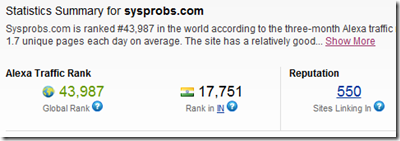
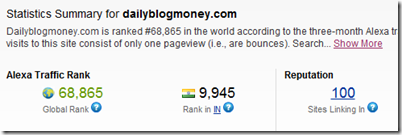
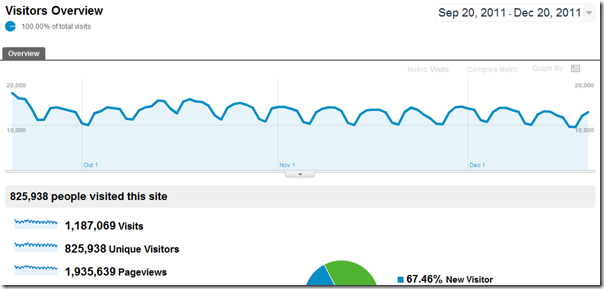
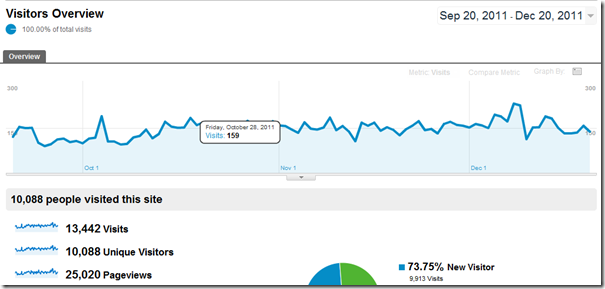
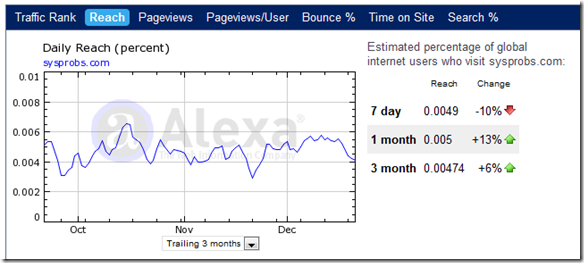
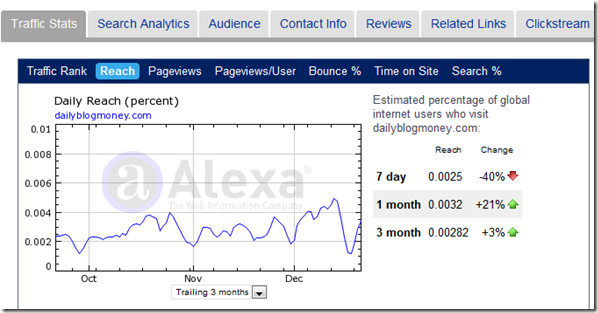
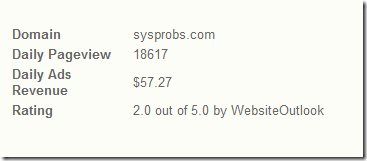
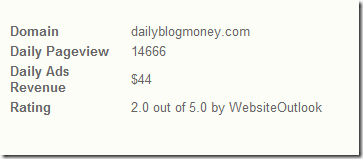
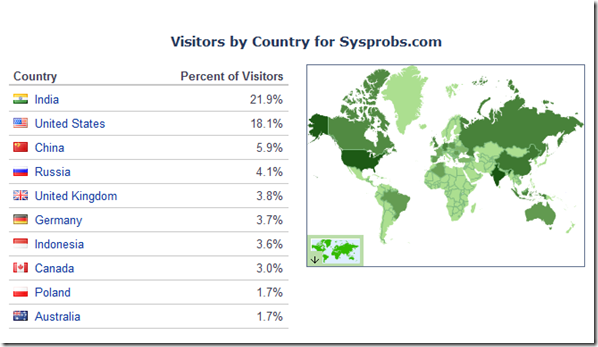
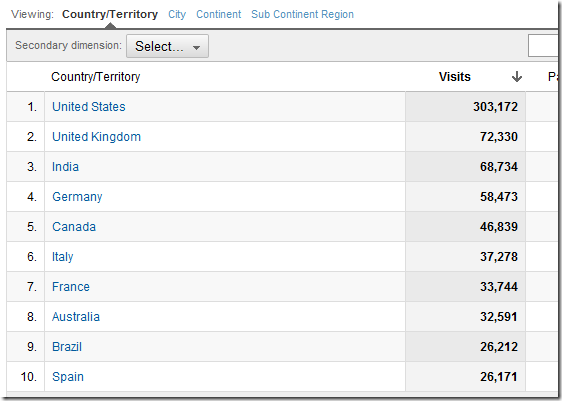








.jpg)
